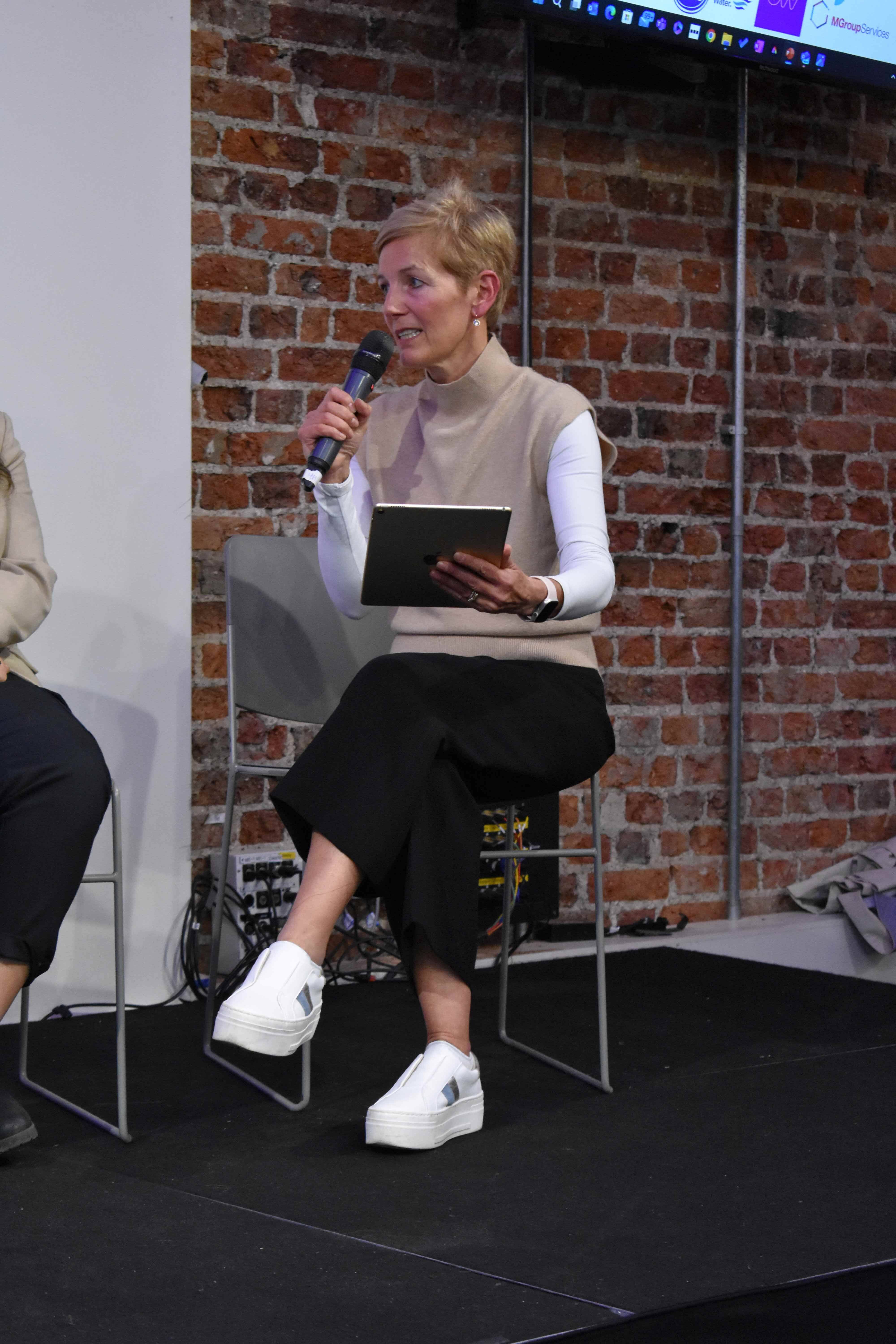This is the Sponsored paywall logged out

A new report highlights the impact of unconscious bias on the careers of women in the utilities industry and finds a significant proportion are considering exiting the sector. We spoke to the founder of the Women’s Utilities Network to find out more.
“It’s a bit sad, but I wasn’t shocked.”
“I felt a sense of sadness and complete relatability.”
“There is a critical need for women to be heard.”
 These views were some of those of a panel of industry figures (both female and male) in response to a new report from the Women’s Utilities Network (WUN) which finds that unconscious bias is holding back women’s careers.
These views were some of those of a panel of industry figures (both female and male) in response to a new report from the Women’s Utilities Network (WUN) which finds that unconscious bias is holding back women’s careers.
While it may be tempting to think sexism and gender stereotyping are things of the past, the report, which surveyed 375 people, makes for at best uncomfortable, and at worst downright alarming, reading.
For instance, a third of women surveyed say they are ‘quite likely’ or ‘very likely’ to leave the sector in the next three years (and that at a time of widespread skills shortages).
That’s not all. The report also finds:
- Almost half (49%) of women do not believe their opinion is as valued as their male counterparts.
- 41% of women say they don’t feel their voice is heard and that they are constantly interrupted.
- 84% say women are given more administrative and organisational tasks.
- And a third (31%) feel they would be judged harshly if they failed or underperformed for any reason.
Ahead of Utility Week Live, we sat down with Hayley Monks, founder of WUN and senior vice president of utilities at WNS, to find out more about the impact of unconscious bias on women in the industry.
Hayley, are there any glaring examples of unconscious bias on the part of men you’ve encountered in your career?
HM: Fifteen years ago, when I was on leadership teams, I was often the person who would organise the team event or book the table for dinner or do what might be considered the ‘admin-type’ jobs. I probably tried to reassure myself it was because I was very organised as opposed to a gender thing, but there was a natural assumption I would do those tasks.
One of the factors the report talks about is the idea of ‘tall poppy syndrome’ – that if you reach a high level in your career as a woman, people will subject you to harsher criticism. Have you found that yourself?
I have definitely had experiences in my career where I was promoted into environments where women were in a minority, and I expected my female colleagues to be supportive and inclusive, and they were the least supportive and inclusive.
I thought they would welcome another woman and they weren’t like that all. That was one of the drivers for setting up the Women’s Utilities Network. I wanted to do everything I could to support other women and open doors for them.
The boss of KPMG in the UK memorably described unconscious bias training as ‘crap’ and got into a lot of trouble. How do we make training effective?
I think training in any form has to have an outcome and purpose. It shouldn’t be taking a course that’s a tick-box exercise. If training is delivered in isolation, then the difference it will make is marginal. It must be part of a holistic programme of awareness that comes from the leadership of the organisation: how they behave, and the environment and culture they create.
The culture should enable people to identify biases – and everyone has biases, not just men – and people should feel comfortable in speaking up about them or saying, ‘that language isn’t inclusive’. Training is important, but in isolation, it’s not enough. You have to walk the talk: if you hear something that contradicts what you’ve learnt, you need to be able to challenge it.
Are employers doing enough to make the recruitment process less subject to bias, or is there a long way to go?
I do think recruitment processes have improved. But there is always the temptation to want a comfortable, homogenous environment at work, which is why we pick recruits who complement us.
Actually, what we need is some healthy friction. That’s what develops new ideas and creates innovation. Progress doesn’t always come from harmony, it often comes from some sort of tension, or doing things differently.
Do stereotypes about female character hold women back more than stereotypes about male character?
If you’d asked me five years ago, I would probably have said ‘yes’. But I think the white, male, 50-something business leader is under a lot more pressure to change now. Anecdotally, I get the sense these men are talking to their 20-something daughters who are entering the workplace and hearing things they don’t particularly like.
In terms of women, do stereotypes hold me back? Maybe. I might be outspoken and be seen as a strong leader – but other people might just see me as difficult.
Could mindfulness training help overcome unconscious bias?
Yes, definitely. There is huge value in observing your reaction to whatever is being said and taking the time to think about it – even if it’s a nanosecond. We could roll out mindfulness training to understand and overcome some of these biases and learn how to manage them. They are part of our long-term upbringing, so they are pretty entrenched!
If there is an exodus of women from the utilities industry, as the report suggests, will that affect our ability to negotiate the energy transition?
A third of women leaving the industry would be nothing short of tragic. The energy transition and what we are going through is probably bigger in terms of impact than any of the industrial revolutions before it. To think half the population is not playing an active role is disastrous.
We need to nurture female talent so it comes into the industry – and stays.
Want to learn more? You can hear Hayley chair a panel on the future for women in the industry on the first day of Utility Week Live. Register now. The Women’s Utilities Network and Utility Week are also working together on the inaugural Women in Utilities Awards 2024. Get your tickets here.
Please login or Register to leave a comment.